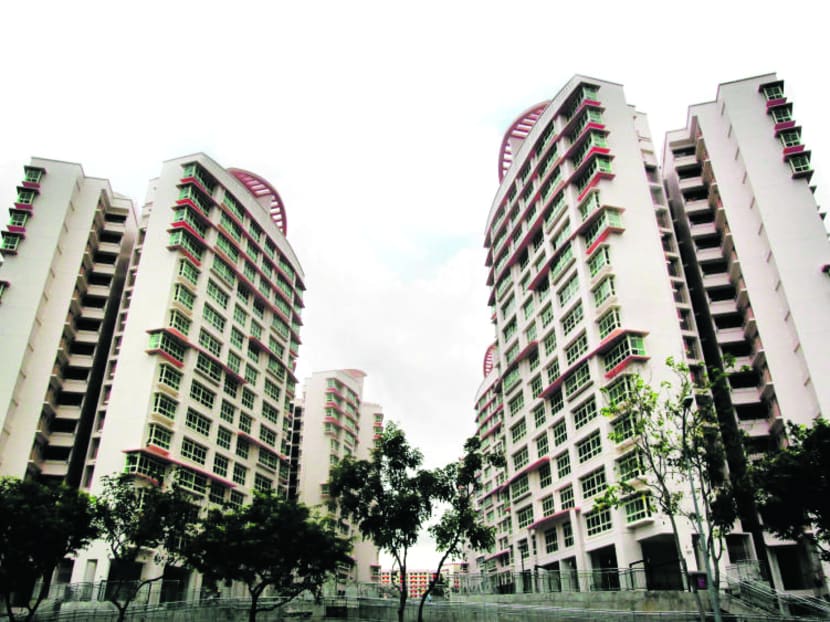Govt watching home prices, will step in if needed: MAS
SINGAPORE — While property measures implemented over the last few years have dampened the rising momentum in the housing market, price levels remain high and the Government will step in, if necessary, to ensure stability and sustainability, the Monetary Authority of Singapore (MAS) said yesterday.

TODAY file photo
SINGAPORE — While property measures implemented over the last few years have dampened the rising momentum in the housing market, price levels remain high and the Government will step in, if necessary, to ensure stability and sustainability, the Monetary Authority of Singapore (MAS) said yesterday.
Sales volume and price growth in the housing market have moderated, but developers continue to put in firm bids for land, which limits the downside of home prices. This warrants continued caution and vigilance, said the MAS.
“If the economy slows down and labour market conditions become less favourable, the property cycle could turn,” the central bank said in its annual Financial Stability Review.
Analysts said land prices would continue on an uptrend as developers have to replenish or build up their land banks in land-scarce Singapore.
Mr Colin Tan, Head of Research and Consultancy at Suntec Real Estate, said: “I think it’s a situation of too many parties chasing after too few goods, so you have inflation of prices.”
“Some developers may have expanded overseas, but there are new entrants in the market too, so in that sense, it is almost inevitable that we continue to see developers bidding up land prices,” he added.
An executive condominium site at Yuan Ching Road set a record high price in July despite the Government’s effort to moderate bidding by closing the sales tender for three land parcels on the same day. In the private housing tenders for two Upper Serangoon View sites that closed last week, the top bids from Chinese-owned developer Kingsford Development were aggressive, though other participants put in more moderate bids.
The MAS also flagged in its review that household debt-to-income ratio has risen from a low of 1.9 times in 2008 during the Lehman crisis to 2.1 times last year. High property prices and the availability of easy credit, made possible by low interest rates and stretched loan tenures, have led to some households taking on “excessive leverage”.
The central bank warned that current unconventional monetary policies employed by advanced economies — such as the United States Federal Reserve’s US$85 billion (S$107 billion) monthly bond purchase programme — to spur growth cannot be in place indefinitely.
“Should advanced countries start normalising policy, interest rates in Singapore could rise … An unexpectedly sharp increase, especially if it comes earlier than expected, could strain the debt-servicing ability of over-extended borrowers,” it said.
“Some households’ financial resilience could deteriorate — the value of their assets could fall even as their debt servicing burdens increase in tandem with rising interest rates,” it added.
Still, CIMB economist Song Seng Wun said the current level of leverage was “manageable” as the Government had implemented measures to encourage financial prudence.
“We’re already seeing measures tightening all areas of borrowing, but we don’t want to over-tighten. So the whole idea is to let debt stabilise at or around the current level.”





